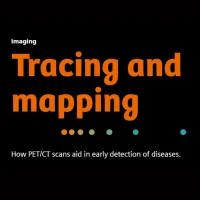In a study appearing in JAMA Network Open, researchers found that primary care clinicians can significantly lower cardiovascular risk for patients with severe mental illness (SMI) when using a clinical decision support (CDS) system.
Cardiovascular disease is a leading cause of death for those with schizophrenia, schizoaffective disorder, and bipolar disorder, which are collectively termed ‘SMI’. The risk is partly due to side effects of medications used to manage SMI, including weight gain, insulin resistance, and altered lipid metabolism. Since physician CDS tools linked to electronic health records (EHR) have decreased cardiovascular risk in other populations, the study assessed whether an EHR-linked CDS system could reduce the cardiovascular risk in those with SMI.
The study was conducted from 2 March 2016, to 19 September 2018, at 76 primary care clinics across three health care systems that provide integrated health care for patients in Minnesota, North Dakota, and Wisconsin. About 8,937 SMI patients (55.1% women; mean age of 48.4 years) participated. For patients randomised to clinical care supplemented by the CDS, the care team received EHR best practice advisories which summarised and prioritised each patient’s modifiable cardiovascular risk factors (i.e., blood pressure, blood lipid, glucose, and haemoglobin A1c levels, smoking status, and body mass index). These also included patient-specific suggestions regarding medications, diet, exercise, and smoking cessation. Patients received plain language patient-specific suggestions regarding medications, diet, exercise, and smoking cessation to be used as shared decision-making tools. The CDS system was designed to seamlessly fit with rooming staff workflows to avoid interfering with clinician workflows.
Modifiable cardiovascular risk factors were assessed during the 12 months following the initial patient visit. Using an EHR-linked CDS system resulted in cardiovascular risk that was 4% lower among intervention patients than control patients. While using the CDS tools worked equally well for male and female patients, it was more effective for younger (18-29 years) and middle-aged (50-59 years) patients.
Although 4% seems modest, this represents a clinical meaningly gain on a population level. The findings support employing CDS systems to prompt using shared decision-making tools, like handouts. These may result in improved long-term cardiovascular health for SMI patients.
For the latest Decision Support news Click here
Source:JAMA Network Open
Image Credit: iStock
References:
Rossom RC et al. (2022) Effect of Clinical Decision Support on Cardiovascular Risk Among Adults With Bipolar Disorder, Schizoaffective Disorder, or Schizophrenia: A Cluster Randomized Clinical Trial. JAMA Network Open, 5(3), e220202-e220202.











